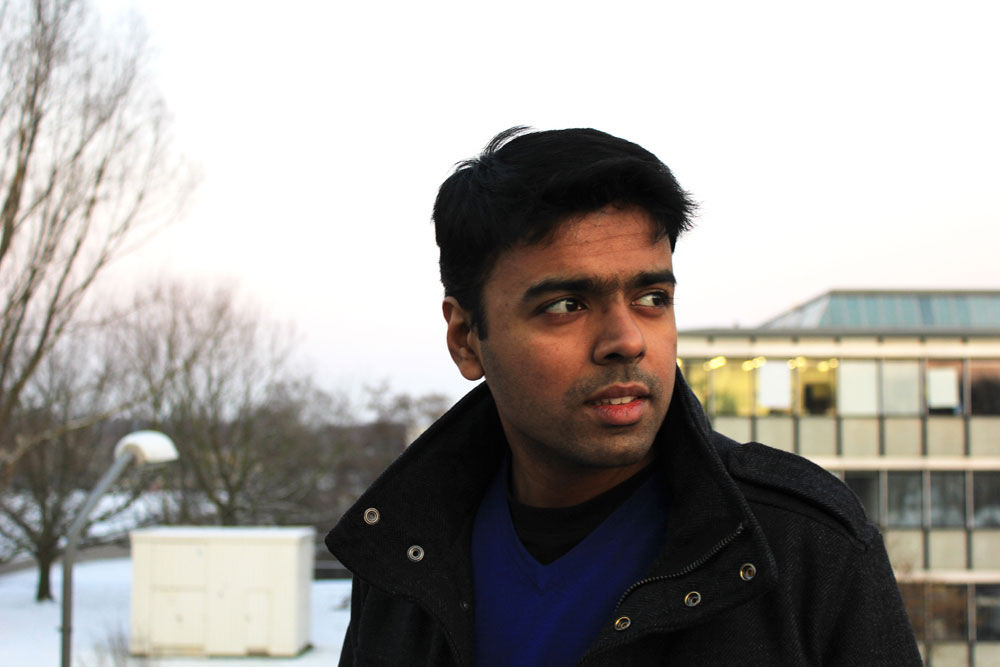Chetan Kaanadka Shivarama, from India, has had an eventful journey since graduating in Strategic Product Design from TU Delft’s Industrial Design Engineering faculty.
Chetan Kaanadka Shivarama finished his MSc in August 2010 and worked for more than a year in the Netherlands on various Base of Pyramid (BoP) projects. Earlier this year, instead of renewing his contract with a Dutch Greenhouse automation company, he decided to head back home to India.
While working for a Dutch greenhouse automation company during his zoekjaar, Chetan experienced the problem-ridden state of India’s agricultural sector and realised he wanted to use his knowledge and design skills to solve problems plaguing the sector. He decided to return to India without any job offers yet determined to work to help improve India’s agricultural sector. Currently, he is a product design consultant for a US-based start-up developing affordable irrigation solutions for small landholding Indian farmers.
How would you describe your career after TU Delft?
“It started with lots of disappointment with respect to how much hope I had for a rosy professional scene for a TU Delft Strategic Product Design graduate. Initial attempts to kick start my career again was quite a disaster with repeated head on collisions against the wall of odds. Interestingly, my first few failures were very heavy on me but repeated disappointment kind of made me immune towards them. I was lucky not to have lost hope, but rather to have gained more courage in accepting defeat in different forms. This meant I had to approach the job market with more creative, out of the box thinking.”
And then in today’s very tough job market.
“Indeed, the are/were no jobs tailor-made for my profile – educational and professional skill mix, nationality, language skills – so I had to create one for myself or change my profile to suit available jobs in the market.”
What were your high and low points?
“High points: freedom to experiment, nothing to lose attitude, more time to reflect and reframe my strategy. Low points: frustration as the race against time got tighter. I saw how most employers in the Netherlands were exploiting the zoekjaar status of international students with their short term contracts with low pay terms.”
Why did you choose to come back to India?
“I always wanted to come back to India; it was just matter of time. It was during the first semester when I decided to change my focus towards entrepreneurial approach in the BoP market, as I was always looking for opportunities to gain experience in this domain. My final thesis and post-graduation freelance work focused on the BoP market, with emphasis on India’s rural market. My last job in Netherlands gave me an opportunity to work for the agriculture sector in India. I imagined this to be the perfect opportunity to make a difference in the country whose GDP is mainly comprised of agricultural produce. But this opportunity brought me closer to the reality that prevailed in the Indian Agriculture scene.
Which is?
“There were many pressing needs and demands for basic technology by the small, poor Indian farmers who form nearly 70% of India’s farming community. My job with the Dutch greenhouse automation company wasn’t the right platform to arrive at design solutions for these problems, as the company had a different target market and business interest (high-end and rich farmers in India). It was in my and the company’s best interest that I quit and return to India with freedom to explore and experiment with what I believed in.”
How do you see your future?
“I want to be a social entrepreneur someday. The key word is entrepreneurship. The problems faced by India’s aam janta (general public) can be solved only through an enterprise approach, not through charity.”
Do you miss Delft?
“Delft still feels like my second home. I always dream and hope to return to Delft and be associated with TU Delft.”
Any advice for students making similarly radical career shifts?
“Never negotiate your dream nor compromise your interest. Do what’s right, what’s necessary, and most importantly what matters to you. If you don’t know what matters to you, then what you do will never matter to the world.”



Comments are closed.